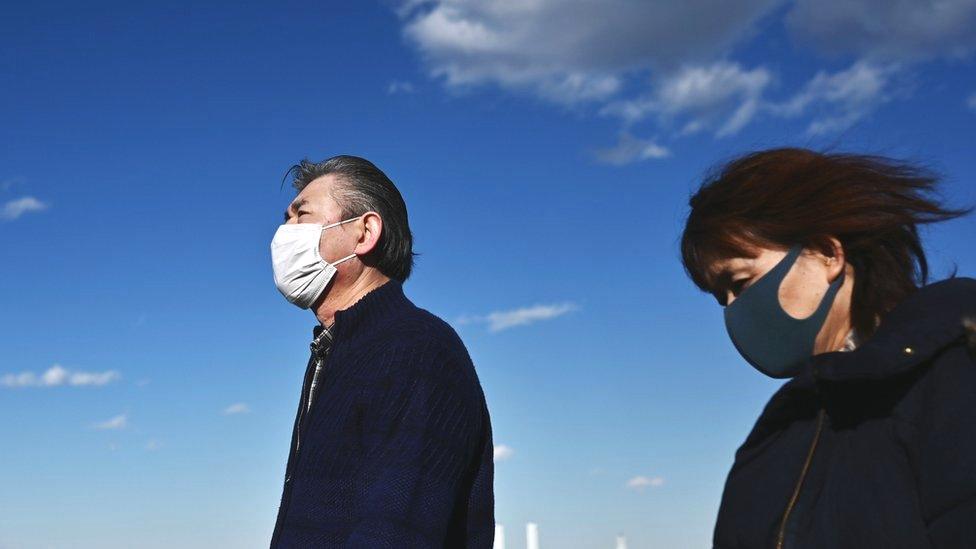Coronavirus: Irish citizens advised not to go to parts of Italy
- Published
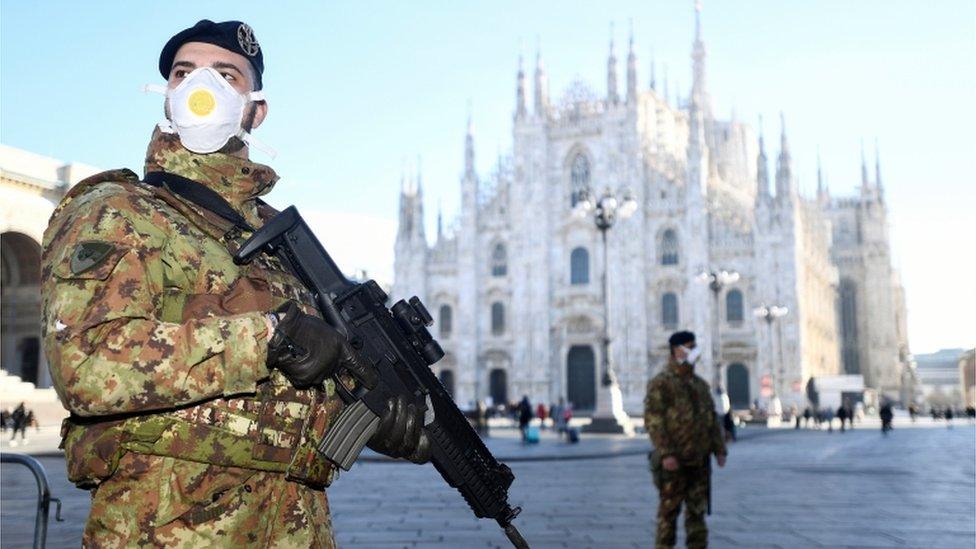
Milan in Lombardy, northern Italy, has cancelled events because of the virus
Ireland's Department of Foreign Affairs has advised its citizens not to travel to areas of Italy affected by the coronavirus.
Italy has reported its fifth death from the virus and has 165 cases - the most in a European country.
In the regions of Lombardy and Veneto, a lock-down is in place in several small towns.
For the next two weeks, 50,000 residents will not be able to leave without special permission.
In its advice, the Irish Department of Foreign Affairs lists the regions of Piemonte, Lombardai, Veneto, Emilia Romagna and Lazio.

World edges closer to coronavirus pandemic
Analysis by Fergus Walsh, medical correspondent
The combined situation in South Korea, Iran and Italy points to the early stages of pandemic.
In each of these countries we are seeing spread of the virus with no connection to China. The lockdown efforts in Italy mirror those that have happened in China.
Mark Lowen was on the ground at the edge of Italy's coronavirus lockdown area
The situation in Iran is especially worrying, because the health authorities have reportedly said the virus has spread to multiple cities, and it appears the first case in Lebanon is linked to a traveller from Iran.
If we have a pandemic, it will still be important to limit the speed of spread of the virus.
If countries could hold it somewhat at bay until the end of winter, there is a hope that warmer temperatures will reduce the time the virus can survive in the air, as we see with seasonal flu. But this may not be certain.

Ireland's chief medical officer has said he anticipates that Monday's meeting of the European Centre of Disease Control to examine the outbreak of coronavirus in Italy, is likely to lead to some changes in advice to European countries.
Dr Tony Holohan said the department would respond accordingly and update its advice.
He said Ireland remained in a containment phase and that as things stood enforced quarantine was not part of the Health Service Executive's plans.
Epidemic v pandemic: What's the difference?
He said the most likely scenario was that cases would appear in small numbers and hospitals were prepared to deal with that. So far, 79 tests have been reported negative.
Dr Holohan said the best chance of identifying the disease was for those who had travelled from an area with coronavirus and have symptoms to report those symptoms to health experts.
- Published24 February 2020

- Published23 February 2020
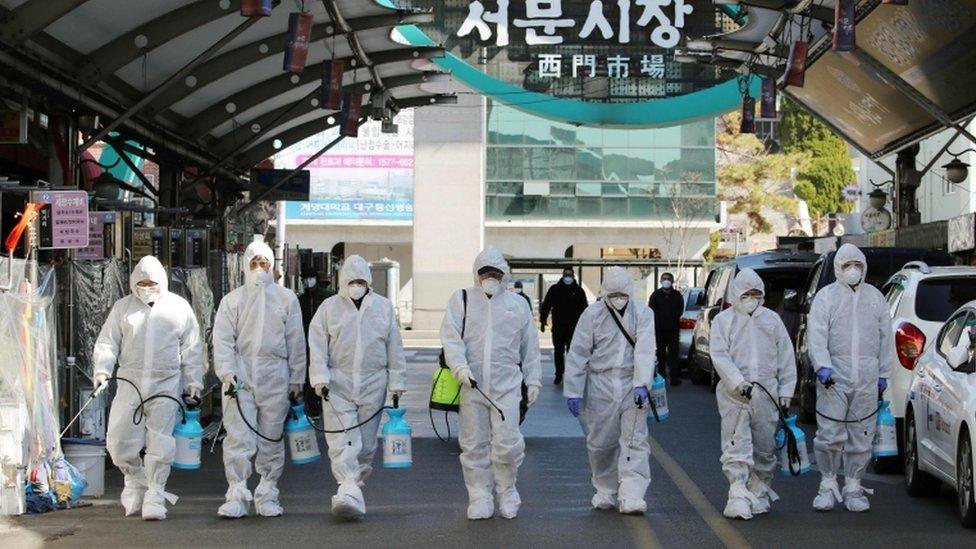
- Published21 February 2020

- Published23 February 2020
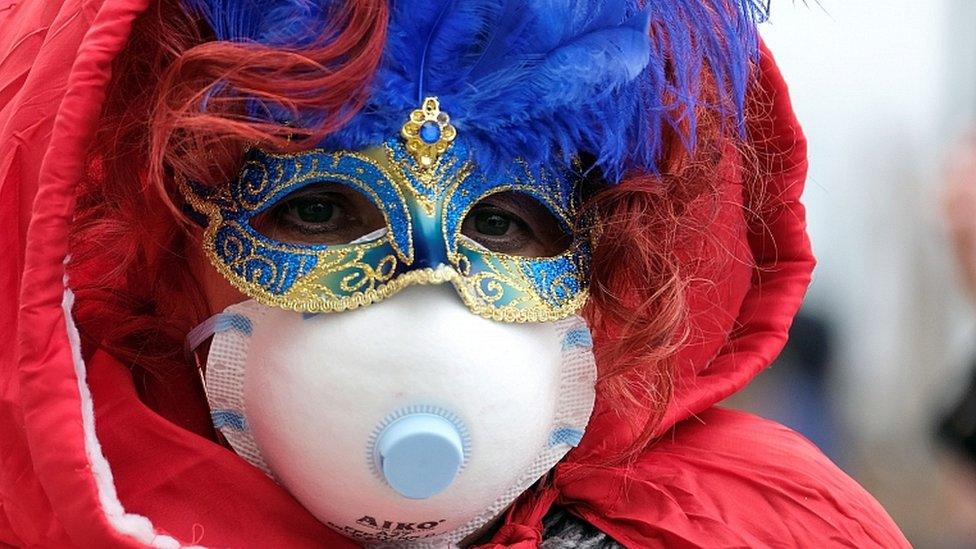
- Published6 October 2021

- Published14 February 2020
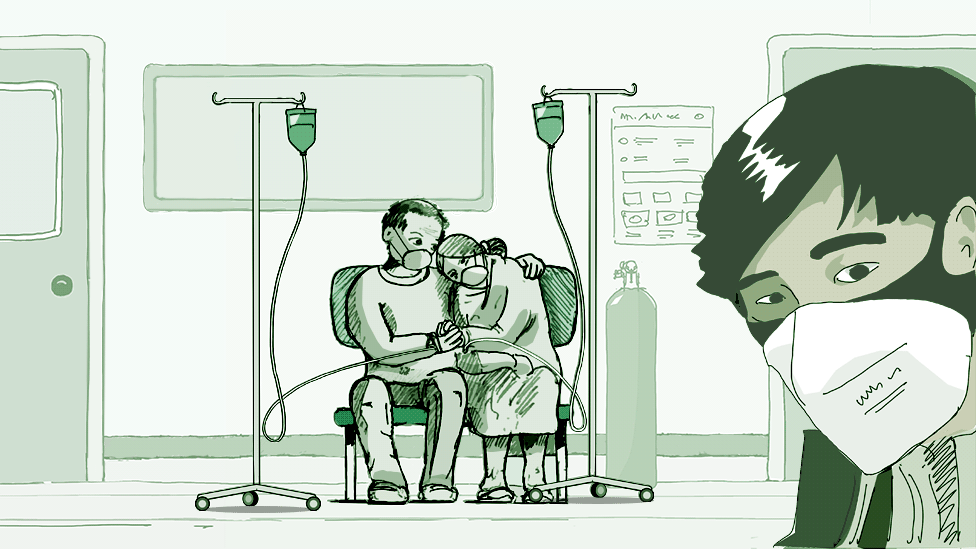
- Published5 July 2022

- Published19 February 2020
